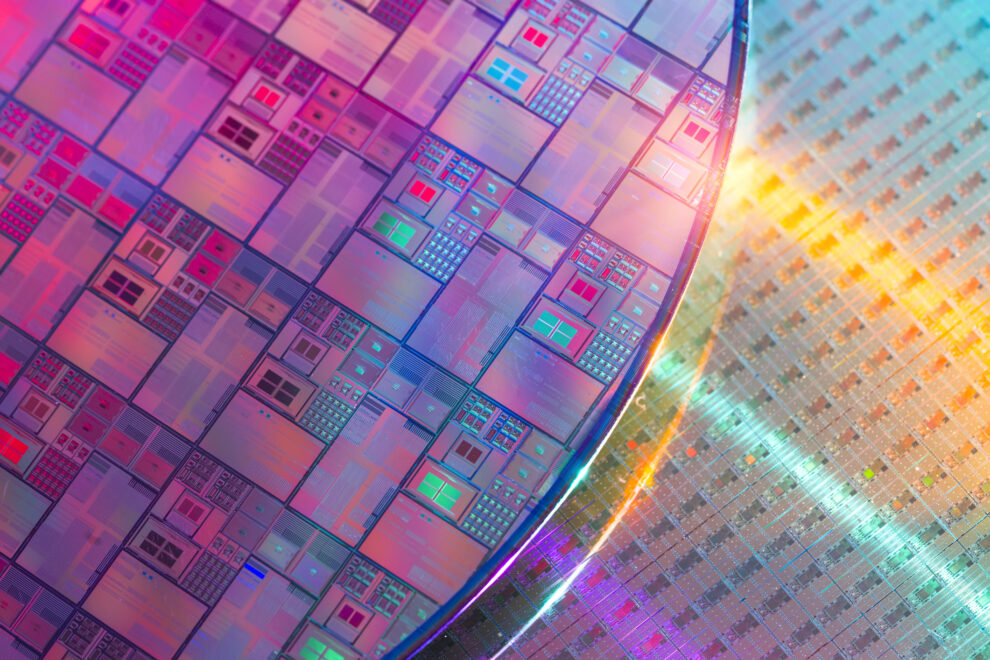$1 trillion may be just a milestone in this company’s continued growth amid the AI boom.
Nvidia (NVDA 0.78%) flew into the $1 trillion club in May 2023 as it capitalized on growing spending on artificial intelligence. The chipmaker has gone on to increase more than three-fold in value since, becoming the second most valuable company in the world, behind only Apple.
The rest of the $1 trillion club is full of some of Nvidia’s biggest customers, the “hyperscalers” building out massive data centers for training and running generative AI. But the newest member of the club is actually a key part of Nvidia’s supply chain. It’s not just Nvidia, though. This semiconductor company works closely with almost every tech company in the $1 trillion club, and now, it’s finally a member itself.
The newest artificial intelligence (AI) chip stock in the $1 trillion club is Taiwan Semiconductor Manufacturing Company (TSM -2.46%). Here’s why $1 trillion may be just a milestone in the stock’s continued ascension into the ranks of the mega-caps.
Image source: Getty Images.
“The world’s best by an incredible margin”
Taiwan Semiconductor, or TSMC, is a chip manufacturer, also known as a foundry or fab. It’s the top choice for many chip designers, attracting over 60% of spending in the industry. There’s good reason for that. TSMC’s technology is much further ahead than that of nearly every competitor.
At an investor conference last month, Nvidia CEO Jensen Huang said: “We’re fabbing out of TSMC because it’s the world’s best. And it’s the world’s best not by a small margin, it’s the world’s best by an incredible margin.”
That’s evidenced in TSMC’s recent financial results for the third quarter. The company reported 39% year-over-year revenue growth. Its gross margin expanded to 57.8% from 54.3% last year, and net income grew 54.2% as a result. The driving force behind those stellar results is TSMC’s technology lead. That makes it the must-have partner for anyone wanting to print advanced chips for AI (like Nvidia’s GPUs) or smartphones (like Apple’s iPhone).
“Our business in the third quarter was supported by strong smartphone and AI-related demand for our industry-leading 3nm and 5nm technologies,” CFO Wendell Huang wrote in the earnings release.
The AI story may be just getting started
Management expects revenue from AI chips to more than triple in 2024, but the segment will only account for a mid-teen percentage of TSMC’s total for the year. There’s a long runway for growth for TSMC in AI, and it’s investing to take advantage of the opportunities presented.
Nvidia works with TSMC to print its chips, but it’s not the only AI chipmaker taking advantage of the leading fab’s advanced technology. Microsoft, Alphabet, Meta, Broadcom, and Advanced Micro Devices are all contracting with TSMC to develop AI accelerator chips. Apple has been using TSMC for years to develop its chips for the iPhone and iPad, and more recently, the Mac.
In other words, no matter how the future of AI data centers, large language model training, and AI inference plays out, TSMC stands to be a big winner.
Management increased its capital expenditure expectations for 2024 to more than $30 billion, and it expects to spend even more in 2025. It’s also spending on research and development, which increased 11.4% year over year last quarter.
Both are keys to TSMC’s ongoing success. As the largest foundry in the world by a wide margin, it’s capable of spending more on machinery and technology while advancing its technological capabilities than any other competitor. That ensures it maintains its position as the technology leader, which in turn leads to continued relationships with the biggest customers in the world. That virtuous cycle is a tremendous competitive advantage for TSMC that’s hard to overcome.
$1 trillion may be just the start
While shares of TSMC more than doubled in 2024, there’s still room for the stock to climb higher.
At its current share price, it trades for just over 25 times analysts’ estimates for 2025 earnings. And that’s before they’ve had a chance to update their models with the most recent results and guidance from management. Over the next five years, TSMC is capable of growing its bottom line at a rate in the 20% range. AI spending remains robust, and the company is able to maintain its high gross margin from strong utilization even as it brings the next generation of technology online. That level of growth more than justifies the current earnings multiple.
What’s most attractive about the company is that it’s protected from future changes in the industry. No matter who’s designing the chips needed for data centers and smartphones, TSMC is sure to grab the vast majority of that business, thanks to the virtuous cycle described above. Given the excellent execution of management over the last few years amid the AI boom, the future continues to look bright for the newest member of the $1 trillion club.
Suzanne Frey, an executive at Alphabet, is a member of The Motley Fool’s board of directors. Randi Zuckerberg, a former director of market development and spokeswoman for Facebook and sister to Meta Platforms CEO Mark Zuckerberg, is a member of The Motley Fool’s board of directors. Adam Levy has positions in Alphabet, Apple, Meta Platforms, Microsoft, and Taiwan Semiconductor Manufacturing. The Motley Fool has positions in and recommends Advanced Micro Devices, Alphabet, Apple, Meta Platforms, Microsoft, Nvidia, and Taiwan Semiconductor Manufacturing. The Motley Fool recommends Broadcom and recommends the following options: long January 2026 $395 calls on Microsoft and short January 2026 $405 calls on Microsoft. The Motley Fool has a disclosure policy.






